Award winning dermatology service, with over 20 years on experience
Short waiting lists, on some occasions offering same week appointments
Safe environment, in Care Quality Commission approved facilities
Common Alopecia Treatments Include:
Advice from our manchester hair loss clinic
Alopecia is a term for hair loss from any cause — a very common and distressing problem. Identifying the correct form of hair loss is very important in achieving a targeted treatment plan.
Hair loss can happen for many reasons and progress in a variety of patterns. You may have noticed a patch of baldness that has begun to grow, or a receding hairline at your temples or forehead and decided to do something about it before it gets any worse. Or, you may have noticed an increase in hairs on your pillow or clothes, indicating that you are shedding hairs at an increased rate, even if there is no visible thinning of the hair. Whatever concerns you have about your hair or scalp, we are here for you no matter what. If it’s important to you, it’s important to us.
This page contains some very brief descriptions of some of the different kinds of hair loss people experience. It is not meant as a comprehensive guide as we do not wish to provide large amounts of information that may not be relevant to you. If you come to see us, everything will be explained clearly and in detail so you have the best possible understanding of your condition and what can be done to treat it.
Alternative names: male/female pattern baldness, alopecia, alopecia areata, scarring/cicatricial alopecia, pseudopelade (of Brocq), folliculitis De Calvans, dissecting cellulitis, telogen effluvium.)
WHAT CAUSES HAIR LOSS?
There are many causes of hair loss. Every case is unique and we provide each patient with personalized specialist care and treatment to achieve the best results possible, whatever the cause. It’s important to note that there is no benefit to waiting in most cases of hair loss – the sooner you seek treatment the better results will be, and no amount of hair loss is too small to seek advice about. If it’s important to you, it’s important to us. Hair loss is described by dermatologists as scarring or non-scarring. Scarring alopecia results in permanent hair loss. This is the reason for urgency in the diagnosis and early treatment. The most common form of hair loss is male patterned baldness. Others include
- Alopecia areata
- Fungal infections
- Lichen planus
- Tractional alopecia
What Are The Main Types Of Hair Loss?
MALE PATTERN HAIR LOSS
By far the most common cause of hair loss in men is male pattern hair loss (MPHL). You may know this condition by another name, androgenetic alopecia. Although scientists are not completely certain what determines who gets MPHL, we do know there is a genetic component to the condition that can be inherited from either parent’s side of the family.
Male pattern hair loss is identified by its characteristic distribution – It affects hair on the top of the head but spares hair on the back and sides of the scalp. MPHL generally progresses in one of three ways – a receding hairline, thinning of the hair on the crown, or a general thinning of the hair all over the top of the head.
The main treatments are a medicated spray or foam or a hormone-blocking tablet that can stabilize the hair loss and with the continued application can cause the growth of new hairs. It is also possible to treat more advanced hair loss with hair transplantation surgery. The key is to catch it as early as possible, ideally, as soon as you notice any thinning or loss of hair – treating early is important – the sooner you can begin treatment, the greater your chance of achieving a good recovery.
FEMALE PATTERN HAIR LOSS
Female pattern hair loss, also sometimes called androgenetic alopecia, affects thousands of women in the UK, usually beginning at around 30 years of age and occasionally earlier. Typically, women present with gradual thinning of the hair at the top of the head and widening of the hair part. Despite similarities with male pattern hair loss, the exact causes of FPHL is less clear. Elevated levels of testosterone or increase sensitivity to the hair follicles to this hormone is a factor in some, but not all, who have this condition. The balance of other hormones in the body and genetic factors are also likely to be important in causing this hair loss.
Female pattern hair loss can sometimes be recognized after another event that causes increased hair fall, for example a serious illness or change in medication.
A number of treatments are clinically proven to stop further hair loss and in many cases reverse it, leading to a recovery of hair thickness and coverage. As with MPHL, early treatment is important as it is much easier to maintain the hair density than to recover it once it has been lost.
ALOPECIA AREATA
Alopecia Areata (AA) is a form of hair loss that affects both men and women causing bald patches to suddenly appear on the scalp or body. This happens when groups of hair follicles prematurely enter the shedding phase of the hair cycle. It is thought to be an autoimmune disorder, where the body’s immune system attacks the hair follicle root by mistake.
We do not know what causes a person to develop AA, but a variety of potential triggers have been identified including infections and severe emotional stress. Treatment for alopecia areata depends on the site and size of the affected areas. Steroids can be used either topically or as injections into the scalp to reduce the immune response and allow the hair to regrow. Larger areas are treated with topical treatments such as potent steroids or dithranol and sometimes tablets can be used. Patches can also regrow by themselves, although there is no way of predicting if or when this might happen. Since AA can appear suddenly and progress rapidly, early treatment is generally recommended to increase the chances of a recovery.
SCARRING ALOPECIA
Although pattern hair loss and AA are the most common causes of hair loss, there are many other conditions that can cause alopecia. The cicatricial or scarring alopecias are a diverse group of conditions that cause inflammation and replacement of hair follicles with scar tissue on the scalp skin. For this reason, when hair loss has occurred, there is no potential for the hair to recover in those areas.
Although this process is irreversible that does not mean these conditions are untreatable. As is often the case, early diagnosis and treatment is vital to limiting the damage caused by the disease. After the inflammation and scarring stops (we term this ‘burned out’), the affected areas can sometimes be replaced by transplanted hairs or the scarred patch removed with an operation.
The scarring alopecias require careful and expert management as an accurate diagnosis of the problem is vital to choose the most appropriate treatment. Sometimes a diagnosis requires a skin sample (biopsy) of the skin.
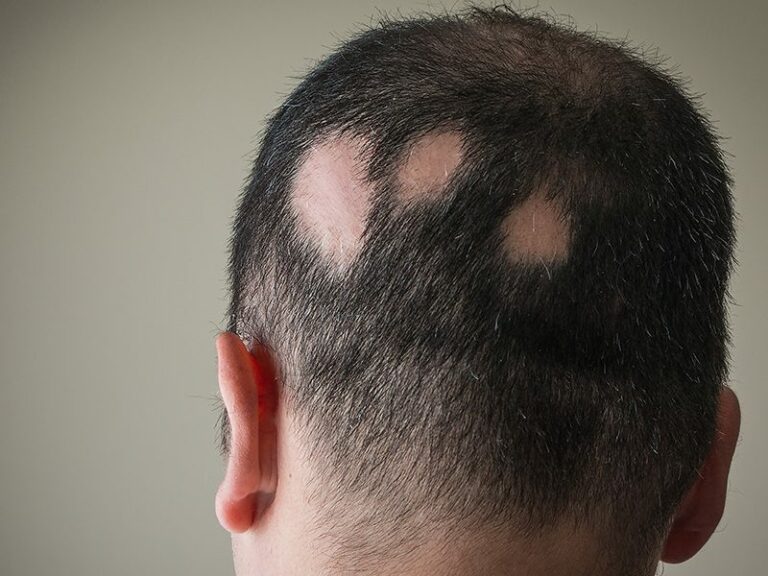
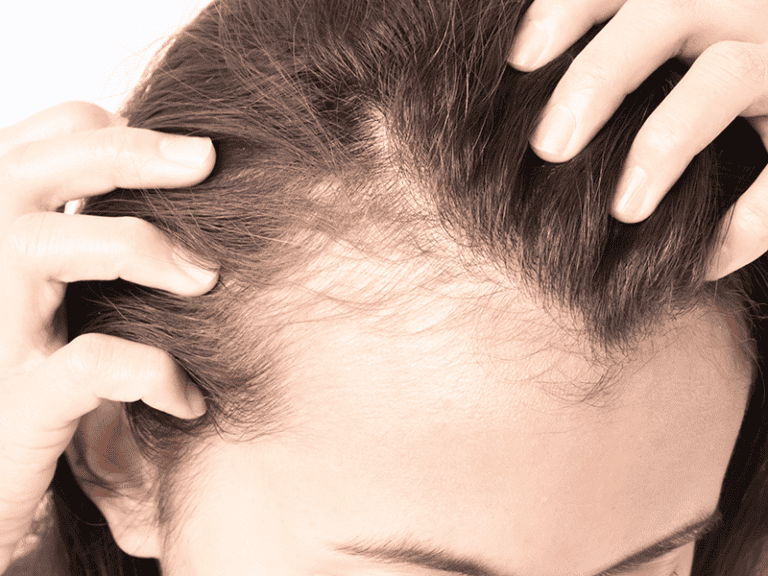
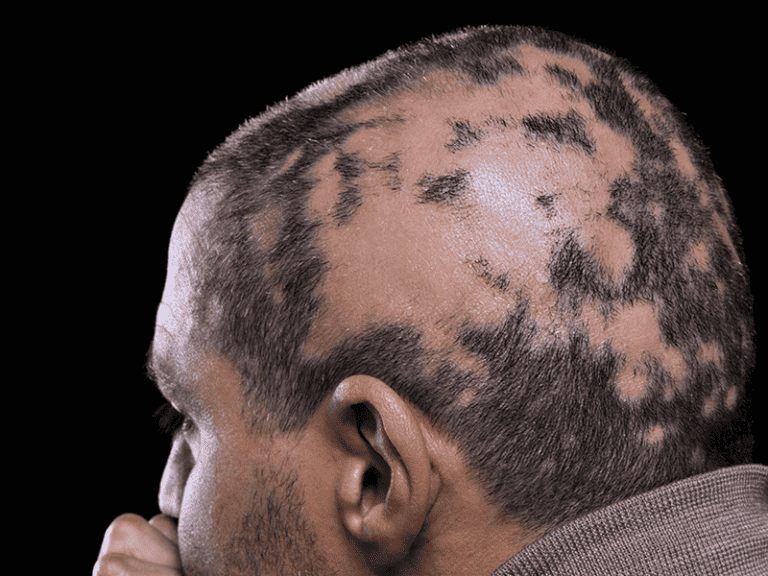
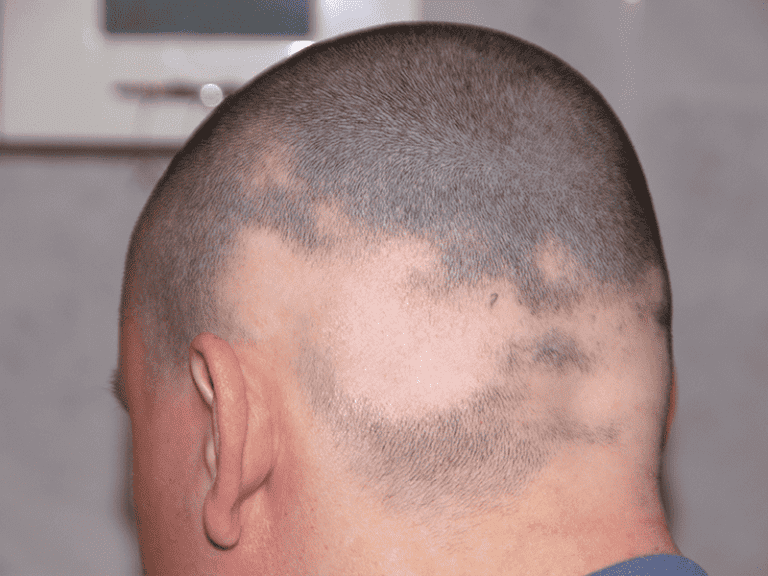
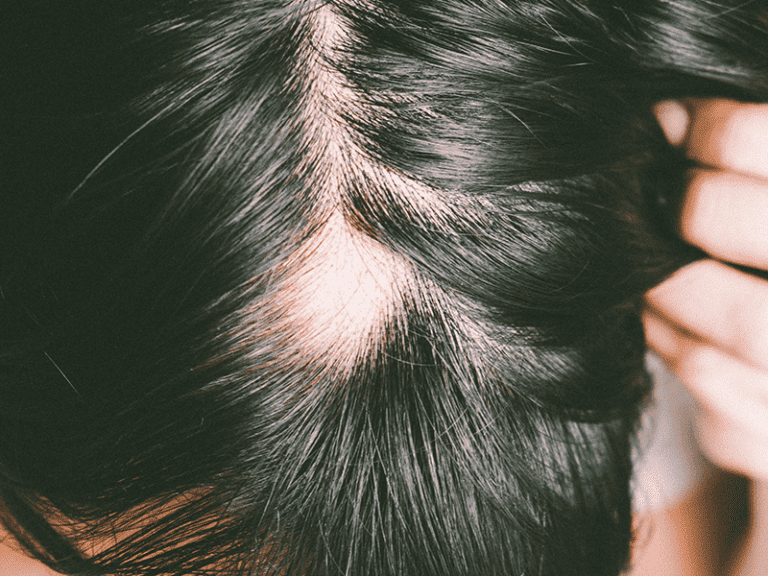
HOW CAN HAIR LOSS BE TREATED?
Platelet Rich Plasma (PRP) is a pioneering new treatment that is highly effective. PRP is a four-step medical treatment that is often highlighted in the celebrity world as a miracle procedure. It’s also referred to as the ‘vampire’ treatment. As a hair loss treatment, PRP is effective and is a proven treatment for hair loss.
The growth factors in PRP can hugely benefit people suffering from hair loss. The growth factors play the role of messengers, signalling skin cells to function. When placing growth factors in the hair follicles, they help stimulate activity. This then promotes hair growth and encourages the rejuvenation of follicles. They also extend the growth cycle of the hair. Find out more about platelet rich plasma treatment here.
At Everything Skin Clinic™, we have a team of highly trained Consultant dermatologists, who have completed specialist training in Dermatology and are on the specialist register of the General Medical Council. All our consultants hold substantive contracts with the best Dermatology centres in leading NHS hospitals. Therefore, you can be certain of the highest quality private care.
FREQUENTLY ASKED QUESTIONS
WHAT IS ALOPECIA?
Alopecia and hair loss mean the same thing; reduction in hair density and increased hair fall. This can be a diffuse process or occur in localised areas on the scalp or other areas of the body. It can occur slowly over many years, or be rapidly progressive, occurring over days or weeks. There are many causes for alopecia which can broadly be grouped into three categories: internal deficiencies, scalp disease or ‘other’ causes. The most important distinction is whether scarring is a feature or not, because this will dictate how successful treatment can be.
WHAT DOES ALOPECIA LOOK LIKE?
Hair loss may be diffuse (i.e. androgenic) or localised (i.e. alopecia areata). If there is scarring, the skin might be featureless with loss of hair follicles and pigment.
HOW MIGHT ALOPECIA AFFECT ME?
The degree of psychological stress caused by alopecia is usually related to the extent of alopecia and the ease (or lack thereof) with which the condition can be covered or hidden.
For further information on alopecia, see the British Association of Dermatologists websites patient information pages:
WHAT IS THE MAIN CAUSE OF ALOPECIA?
Alopecia is an autoimmune disease, meaning cells in your immune system attack your hair follicles causing your hair to fall out.
REQUEST A CALL BACK
Please fill in this form and one of our team will give you a call back to arrange a consultation with one of our expert dermatologists.
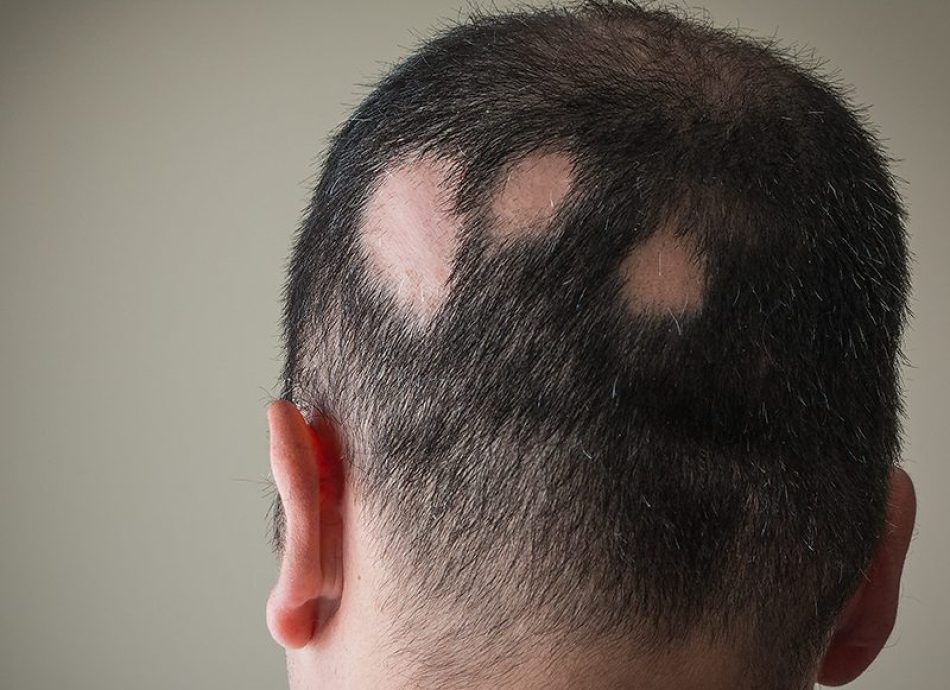
HEAR FROM OUR PATIENTS
WHY TREAT YOUR HAIR LOSS AT EVERYTHING SKIN CLINIC?
At Everything Skin Clinic™, we have a team of highly trained Consultant dermatologists, who have completed specialist training in Dermatology and are on the specialist register of the General Medical Council. All our consultants hold substantive contracts with the best Dermatology centres in leading NHS hospitals. Therefore, you can be certain of the highest quality private care.
Our Manchester Hair Loss Clinic offer a range of treatments and can offer one, or a combination of treatments to achieve the best results. Unlike many other clinics, we can offer diagnosis and treatment all under one roof by expert consultant dermatologist, so you know you’ll be in safe hands.
latest INSIGHTS AND ADVICE

Comprehensive Autumn Skin Care Guide
Autumn, with all its glorious colours, also brings a few challenges for our skin. As the air gets cooler and the leaves change colour, keeping your skin glowing and healthy during the transition from summer can feel a bit tricky. But don’t fret – this
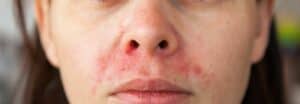
Eczema Awareness Month – Your Eczema Guide
October serves as Eczema Awareness Month. For those of you dealing with eczema, you’ll know the challenge of managing this skin condition all too well. Our commitment throughout October and always, is to enlighten, support and empower you by sharing invaluable insights about its origin,

Demystifying Varicose Veins: Identifying, Controlling And Avoiding
Varicose Disease Awareness Month is dedicated to raising awareness about a common yet often overlooked condition affecting millions worldwide —varicose veins. Throughout September, we aim to shed light on the importance of early detection, treatment options and lifestyle adjustments to manage varicose veins effectively. By
